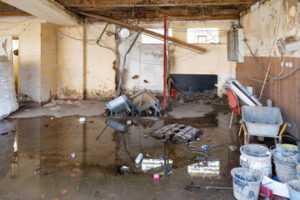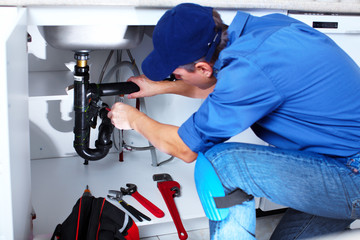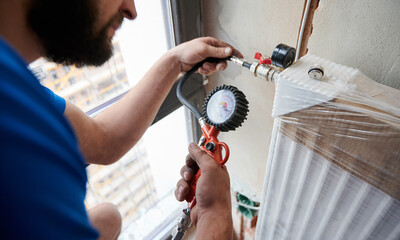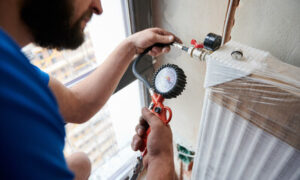Professional restoration contractors do water restoration for a home or business after a flood or other property damage. This process involves preventing further damage, mitigating health risks, and salvaging valuable possessions.

Water restoration starts with a detailed inspection. This includes assessing and classifying the damage. It also includes determining the cost of repairs. Keep reading the article below to Learn More.
When faced with water damage, it’s important to act quickly. The longer you wait, the more severe the damage will be and the more time it will take to restore your property to a livable condition. To speed up the restoration process, hire a professional with experience in dealing with these types of disasters.
A good restoration company will begin the process with a thorough assessment of your home. This includes identifying the source of the water, documenting the affected areas and taking photos or videos for insurance purposes. In addition, the experts will also inspect hidden areas such as behind walls and under floors to ensure that no damage is overlooked.
Once the assessment is complete, the restoration professionals will start the cleanup and drying process. They will use industrial-grade pumps, vacuums and dehumidifiers to remove any standing water. They will also utilize specialized drying techniques to eliminate moisture from hidden areas and prevent future issues such as mold growth. In some cases, drywall will need to be removed and sanitized, carpeting and carpet padding will need to be removed and sanitized, and antimicrobials may need to be applied to prevent the spread of mold spores.
The restoration process can be complicated, but a professional will handle every step. They will ensure that your home is dried and sanitized, and will work with your insurance provider to ensure the process runs smoothly. They will even provide a detailed estimate and timeline for the entire project so you can plan accordingly.
Finding a reliable restoration service is essential to getting your home back to normal as soon as possible after a disaster occurs. Look for a company with experience and expertise in water restoration, and ask about their certification and insurance coverage. You should also find out whether they can offer a 24/7 emergency line and what their response time is. Also, be sure to check out the reviews and feedback of other customers to see how satisfied they were with the company’s services. You should also make sure the company has an emergency line and works with insurance providers to ease the stress of the claims process.
Preventing further damage
Water damage is a severe problem that can cause serious structural damage, ruin your belongings, and lead to the growth of toxic mold. However, if you act quickly and call in the professionals, you can reduce the amount of damage done to your property. The first step in the process is water mitigation, which focuses on preventing further damage. This includes removing materials like flooring, beams, and drywall to prevent mold, mitigating structural weakening, and protecting your belongings. It also involves steps like boarding up windows and applying tarps. Then, the restoration process can begin.
Water Restoration companies use specialized equipment to clean up the water damage and prevent future issues. They start with a thorough inspection and assessment of the situation, classifying the level of water damage into categories based on the source and quality of the water. For example, category 1 water is considered clean and comes from sources such as broken pipes or rainwater, while category 2 is considered contaminated and contains bacteria, and category 3 is considered unsanitary and contains life-threatening toxigenic agents and pathogens from raw sewage.
After the inspection and classification, the next step is to remove as much standing water as possible from the affected area. This is important because the longer water sits, the more damage it can do to surfaces. The restoration team may use towels, wet/dry vacuums, or mop to remove the water. They may also remove any materials that are beyond repair or that have been damaged by the water.
During the drying out process, professional water restoration contractors use moisture meters to determine how dry the building is. This step is important because it can help them determine whether further repairs are needed. In addition, it can help them avoid potential health and safety issues, such as mold growth or bad odors.
When choosing a water restoration company, look for one that is certified by the Institute of Inspection, Cleaning and Restoration Certification (IICRC). This certification ensures that the company uses best practices and has the proper equipment to handle your situation. It is also a good idea to check out the company’s reputation by asking for referrals from friends and neighbors.
Keeping your belongings safe
Water Damage Restoration isn’t just about fixing your property, it’s also about ensuring that your belongings and personal possessions are safe. This is especially important when dealing with a flood, as many items may be irreplaceable and can have sentimental value. During the Water Restoration process, a professional will help you to assess and save your belongings, and will often recommend storing them out of the damaged area. This can be done in a safety deposit box, at storage facilities or at the homes of family members or friends.
It is important to keep in mind that, even though it might be tempting to try and save your possessions yourself, this can be very dangerous. Standing water can be full of bacteria and other microorganisms that could pose a health risk to you and your family. As a result, it is vital to always reach out to a Water Restoration expert for assistance when the situation calls for it.
Once the water restoration company arrives, they will begin by performing a thorough inspection of the damaged areas. They will then identify the source of the water and stop it, if necessary. Next, they will extract the excess water from the affected area using industrial-strength vacuums and pumps. Once the area is dry, they will sanitize it to ensure that there are no harmful organisms present.
Another important part of the Water Restoration process is drying and dehumidification. This is necessary to prevent the formation of mold and fungus, as well as to ensure that the building materials are not contaminated by bacteria. To speed up this process, air movers and industrial-grade dehumidifiers will be used.
It is important to note that there are two different types of Water Restoration services: Mitigation and Restoration. Mitigation involves taking steps to prevent further damage, such as getting your belongings out of the water and tarping a roof. Restoration, on the other hand, deals with restoring and repairing existing damage to your property. This can include things like cleaning and sanitizing, as well as removing and replacing building materials.
Saving you money in the long run
Water damage is one of the most devastating problems a home owner can face. If not addressed immediately, it can lead to expensive structural damage and mold growth. However, there are steps you can take to prevent this from happening. The best way to protect your property is to hire a professional water damage restoration company. These experts have the training and equipment to clean up your property quickly and efficiently. They can also help you save money in the long run by reducing your repair and replacement costs.
A professional water damage restoration company can handle both structural and cosmetic damages. They can also work directly with your insurance company to streamline the claims process. This will save you time and stress, allowing you to focus on the other important aspects of your life.
It is important to hire a qualified water damage restoration company as soon as possible after an incident occurs. They can provide a complete inspection of your property and recommend any necessary repairs. They will also restore your belongings and replace any contaminated items. This will help you save time and money in the long run, and it will ensure that your property is safe and secure.
A water restoration company will have the proper equipment and tools to handle any type of water damage. They can use commercial-grade dehumidifiers, pumps, and blowers to remove moisture from the affected areas. They will also use advanced moisture detection equipment to identify hidden moisture behind walls and under floors. Additionally, they can provide you with detailed reports of the inspection and damage. This will allow you to make informed decisions about your next steps.
Many people attempt to do their own water cleanup after a disaster. This can be dangerous, especially if the water is contaminated. Floodwaters may contain bacteria and other hazardous organisms, which can affect your health. A professional water restoration company will have the proper safety equipment and knowledge to safely remove and dispose of contaminated materials.
In addition to saving you money, hiring a water restoration service can also improve the overall value of your home or business. Water damage can cause stains, odors, and other cosmetic issues that can deter potential buyers or tenants. However, if the issue is addressed quickly, it can be repaired and restored to its original condition. This can help you save thousands of dollars and maintain or even increase the value of your property.





